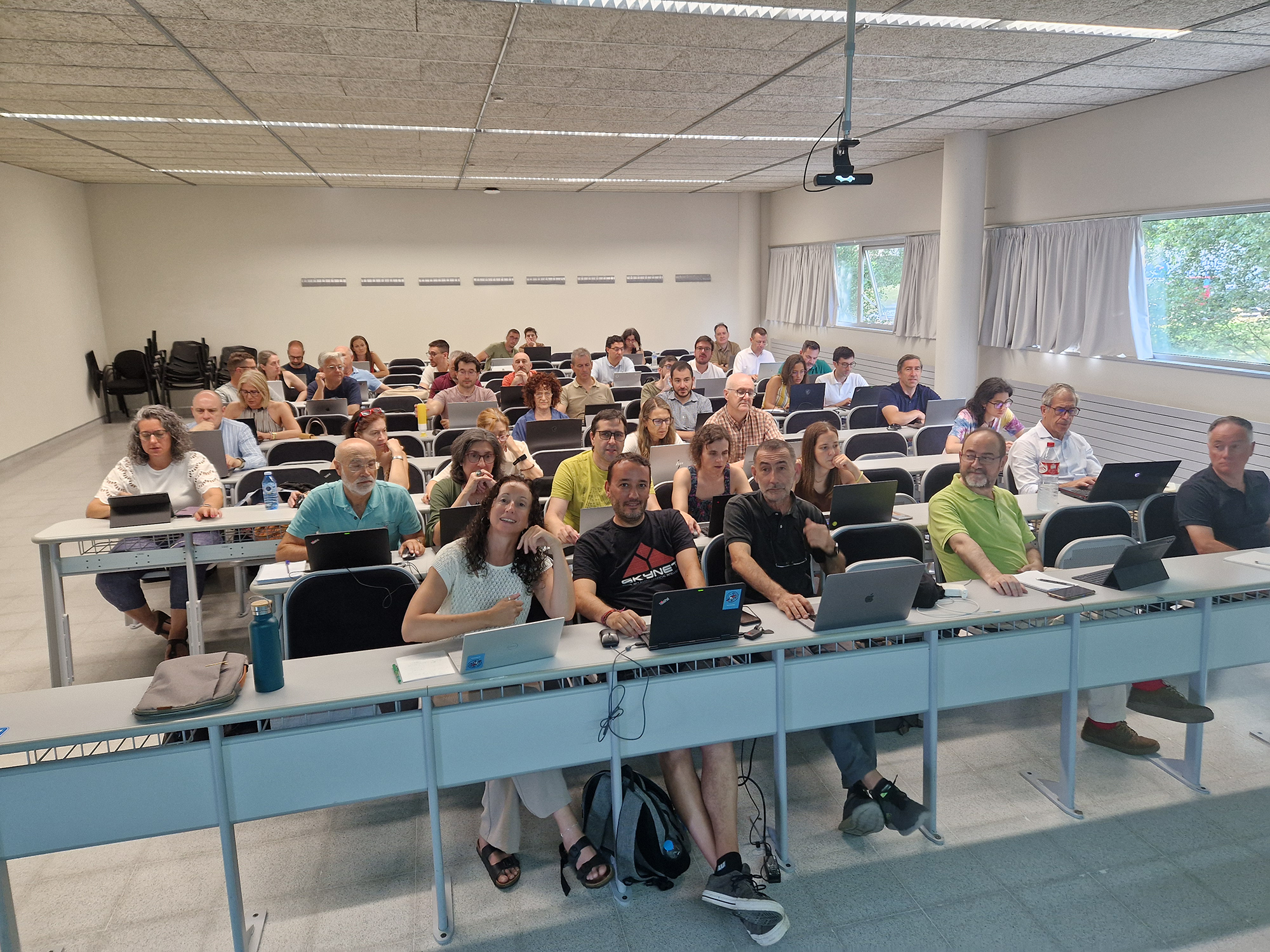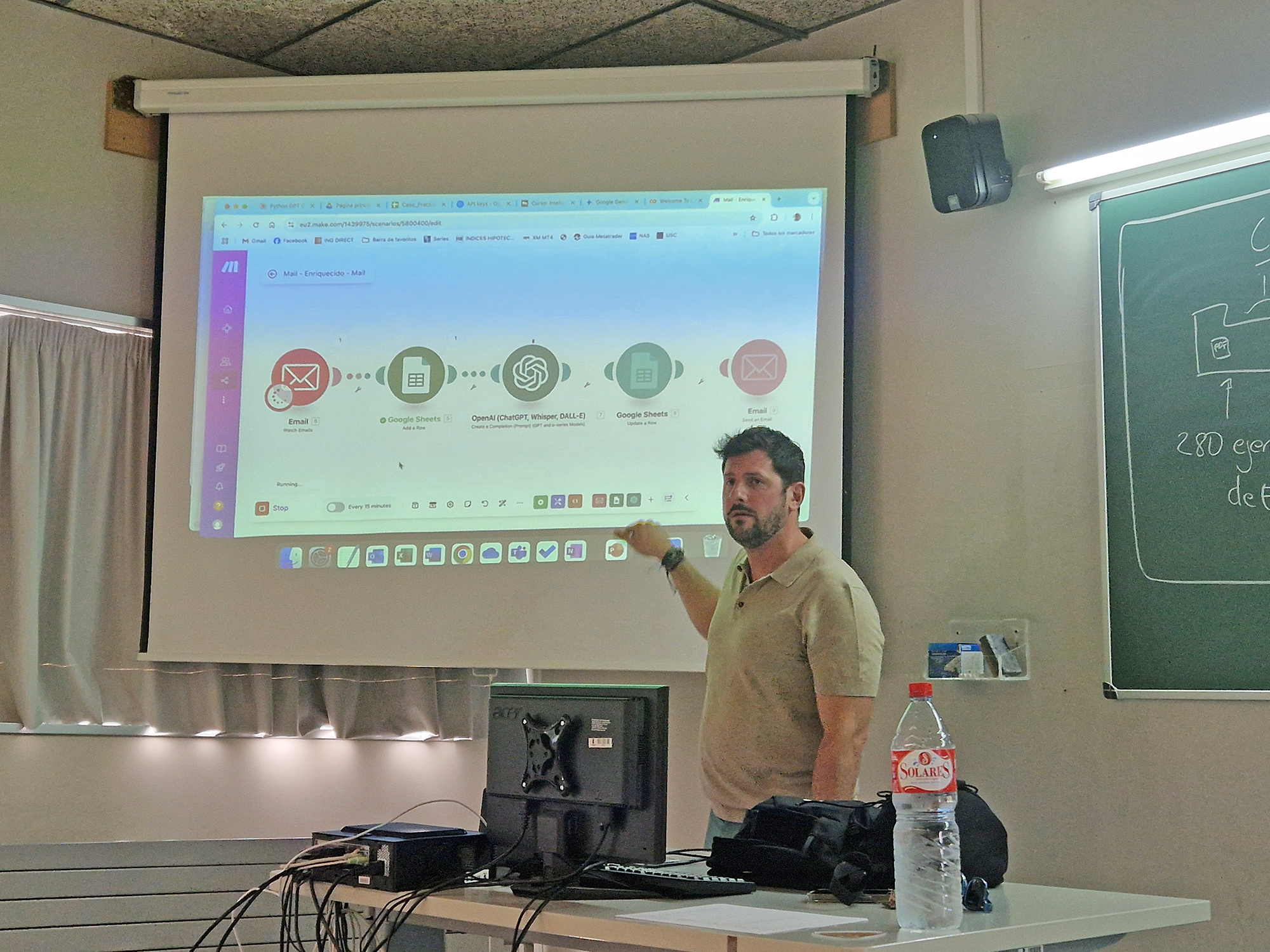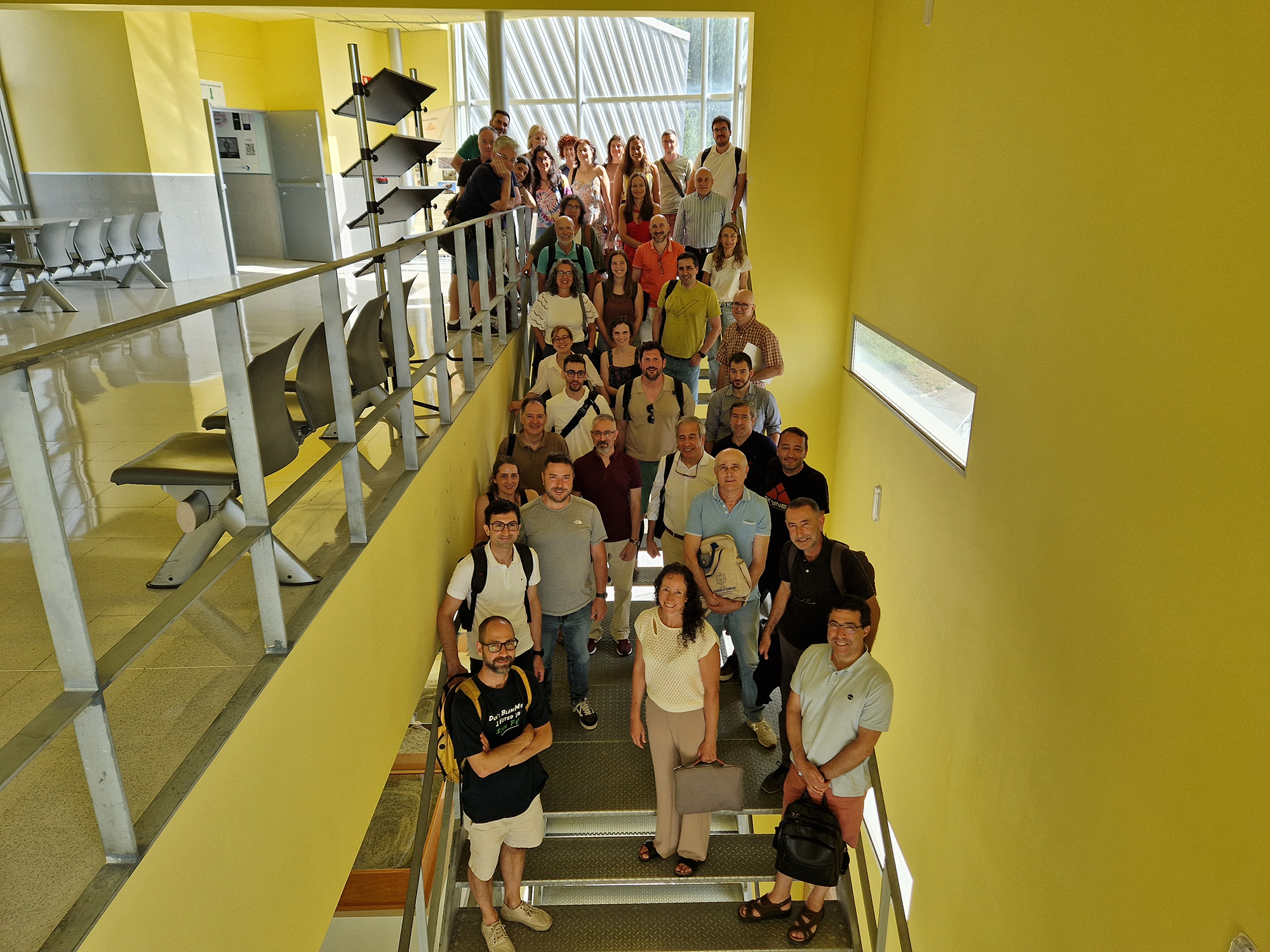The idea originated at the School of Telecommunication Engineering, where a usage guide was already available
The three engineering schools on the Vigo campus—Industrial Engineering, Mining and Energy Engineering, and Telecommunication Engineering—will launch an innovative pilot experience next academic year. The initiative involves more than fifty faculty members and aims to integrate the use of Generative Artificial Intelligence (GAI) into teaching, while analyzing the challenges and needs that may arise and exploring the best ways to address them. The idea began at the School of Telecommunication Engineering, which had already approved a usage guide for both instructors and students last year. Now, a new step is being taken to establish more detailed guidelines.
The pilot consists of several phases. “The first is training the participating faculty members, which is the stage we are currently in,” explains Rebeca Díaz, director of the School of Telecommunication Engineering (EET). She adds that the next step will involve gathering detailed documentation on how each teaching team plans to use GAI in their courses. During the first semester, training sessions will also be held for the students enrolled in those subjects. At the end of the semester, data will be collected on the implementation of GAI. “With the information gathered, we will refine the application of GAI in the second semester, as well as the training provided to instructors and students,” Díaz explains.
Finally, as a conclusion to this pilot, the goal is to produce a detailed analysis of the impact of GAI on the teaching and learning process. The project will document good practices to facilitate their transfer to other courses and degree programs, and help determine the most suitable tools for different educational uses (self-assessment, virtual assistants, automatic code generation, etc.). If necessary, it will also help identify “the type(s) of software licenses required.”
The Plan Involves a Dozen Degree Programs and Around 800 Students
To launch the initiative, collaboration was first sought from instructors teaching in the Bachelor’s Degree in Telecommunication Technologies Engineering in order to carry out a guided and monitored process during the 2025–2026 academic year. “We quickly decided to extend it to all three engineering schools on the Vigo campus, since doing so would provide a broader range of cases and lead to more comprehensive analysis results,” says Díaz. She explains that the management teams at the Schools of Industrial Engineering and Mining and Energy Engineering were also interested in the impact of GAI on students and faculty, so it was “only natural” to design the pilot in a coordinated manner. “From the beginning, we felt that the three schools shared common interests and that working together could yield much more valuable insights than isolated pilots,” Díaz emphasizes.
The project involves all the degree programs offered by the three schools, with participation from over 60 faculty members and “no fewer than 800 students.” The training being delivered during these initial weeks of the “first edition of the training program” will be applied directly to teaching activities in various subjects, including specific use-case proposals.
The School of Telecommunication Engineering Already Had a Guide and Will Soon Publish a More Extensive Manual
In parallel with the launch of this pilot project, the School of Telecommunication Engineering is finalizing the publication of a new and “more comprehensive” manual that delves into the various ways GAI impacts university teaching: methodologies, assessment, regulation, declaration of use, and more. Titled Generative Artificial Intelligence in Academic Practice, the manual is edited by EET professor Manuel Caeiro Rodríguez and co-authored by the faculty members who originally developed the first guidance document approved by the school last summer.
This publication will be funded through the Monographs and Teaching Manuals Call by the Universidade de Vigo’s Publishing Service.
Source: Duvi




